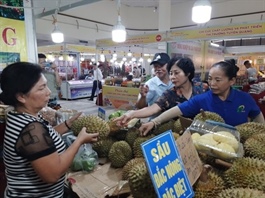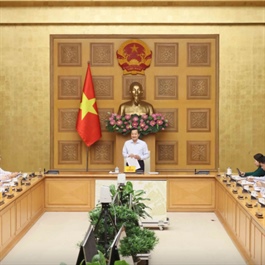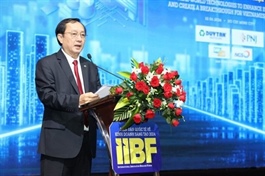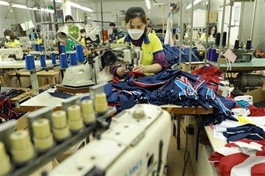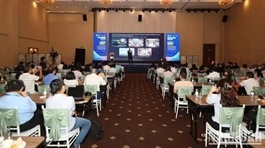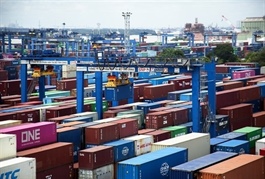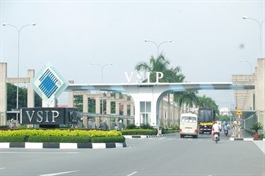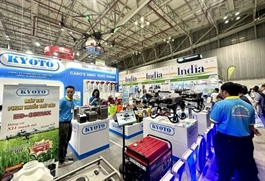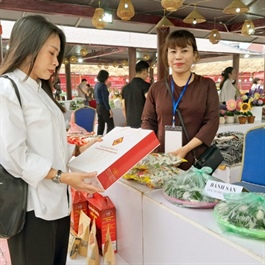Vietnam, Germany eye cooperation on energy transition
Vietnam, Germany eye cooperation on energy transition
Germany stands ready to cooperate with Vietnam on energy transition through the Just Energy Transition Partnership (JETP).
Energy transition remains among the key potential fields for cooperation between Vietnam and Germany in the coming time.
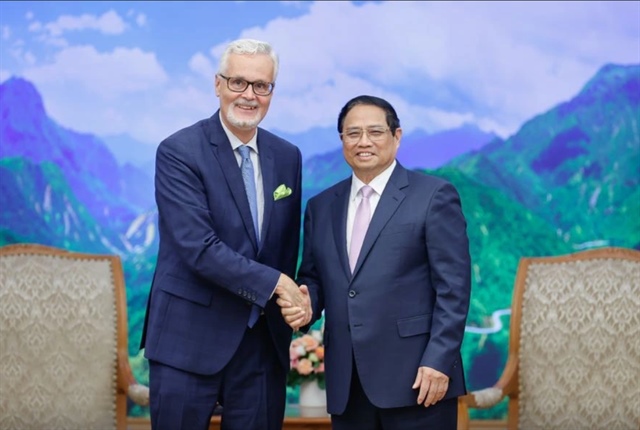
Prime Minister Pham Minh Chinh and German Ambassador to Vietnam Guido Hildner. Photo: Nhat Bac/VGP |
The view was shared during a meeting on June 12 between Prime Minister Pham Minh Chinh and outgoing German Ambassador to Vietnam Guido Hildner.
Prime Minister Pham Minh Chinh congratulated Ambassador Guido Hildner on his successful tenure in Vietnam, expressing hope and confidence that, in whatever role he assumes in the future, the Ambassador will remain a close friend and continue to contribute positively to strengthening the Vietnam-Germany Strategic Partnership.
The Prime Minister said Germany has actively supported Vietnam's participation in the Just Energy Transition Partnership (JETP) with the G7 and other international partners.
He requested Germany's continued cooperation in implementing the JETP, sharing experiences, providing concessional loans, transferring technology, training human resources, and improving governance and institutional capacity in energy transition, climate change response, and sustainable development.
“Vietnam will continue to improve its institutional and policy framework to create a more favorable, equitable, secure, stable, and investor-friendly environment, particularly in energy transition and climate change response,” Chinh said.
Comprehensive partnership
Meanwhile, he reaffirmed Vietnam's high regard for Germany's leading role in Europe and the world and its commitment to deepening the strategic partnership in all areas.
Both the Prime Minister and Ambassador Hildner acknowledged that, nearly 50 years after establishing diplomatic relations and over 10 years of a Strategic Partnership, the relationship between Vietnam and Germany has developed across all fields.
In terms of political and diplomatic relations, both sides have regularly exchanged high-level delegations and maintained effective bilateral cooperation mechanisms. They have also supported each other in multilateral forums and international organizations, such as the United Nations, and within the ASEAN-Germany and ASEAN-EU frameworks.
The visits to Vietnam by German Chancellor Olaf Scholz in November 2022 and President Frank-Walter Steinmeier in January 2024 have further invigorated bilateral relations.
Economically, Germany remains Vietnam's largest trading partner in the EU and one of its largest EU investors. Bilateral trade reached over US$11 billion in 2023, and Germany ranks 18th out of 143 countries and territories investing in Vietnam.
The Prime Minister expressed his gratitude to the German government and people for providing Vietnam with over 10 million doses of Covid-19 vaccine and medical supplies to help the country overcome the pandemic and swiftly obtain economic recovery.
Chinh noted that Vietnam appreciates Germany's support for development cooperation over the past three decades, especially in the areas of education, training, and labor.
He proposed continued high-level exchanges, maintaining dialogue mechanisms, and making effective use of the EU-Vietnam Free Trade Agreement (EVFTA) and the EU-Vietnam Investment Protection Agreement (EVIPA) once they come into force. He also called for Germany's support in urging the European Commission to lift the yellow card on Vietnam's seafood exports and for increased high-tech transfers to Vietnam.
In education and training, the Prime Minister expected more scholarships to Vietnamese students, strengthened cooperation in vocational training, and high-quality human resource training, and facilitation to Vietnamese workers in Germany.
The Prime Minister also thanked Germany for supporting the Vietnamese community in Germany and requested continued favorable conditions for them to live, work, study, and serve as a bridge between the two countries.
Sharing some major foreign policy and defense orientations, the Prime Minister emphasized Vietnam's strong commitment to peace, shaped by its history of wars, divisions, and embargoes.
Ambassador Hildner expressed impressions of Vietnam and noted the strengthening of bilateral relations and their significant potential. He thanked the Prime Minister for promoting economic ties and climate change cooperation.
The ambassador highlighted the successful integration and contributions of the Vietnamese community in Germany and suggested enhancing cooperation in labor, energy transition, and multilateral forums. Germany is interested in recruiting more skilled Vietnamese workers and attracting more Vietnamese students.
The Ambassador praised the Prime Minister's message at the COP26 Climate Summit and confirmed Germany's willingness to cooperate closely with Vietnam on the JETP, energy transition, and climate change response.
Germany values Vietnam's international role, particularly in ASEAN and the UN, and believes that Vietnam's strong development benefits the world. The Ambassador expressed a desire for increased cooperation with Vietnam in multilateral forums to promote global trade, peace, stability, cooperation, and prosperity.
The Prime Minister and the Ambassador also discussed shared international concerns. On the South China Sea issue, both emphasized the importance of peace, security, stability, freedom of navigation and overflight, and the resolution of disputes through peaceful means in accordance with international law.







